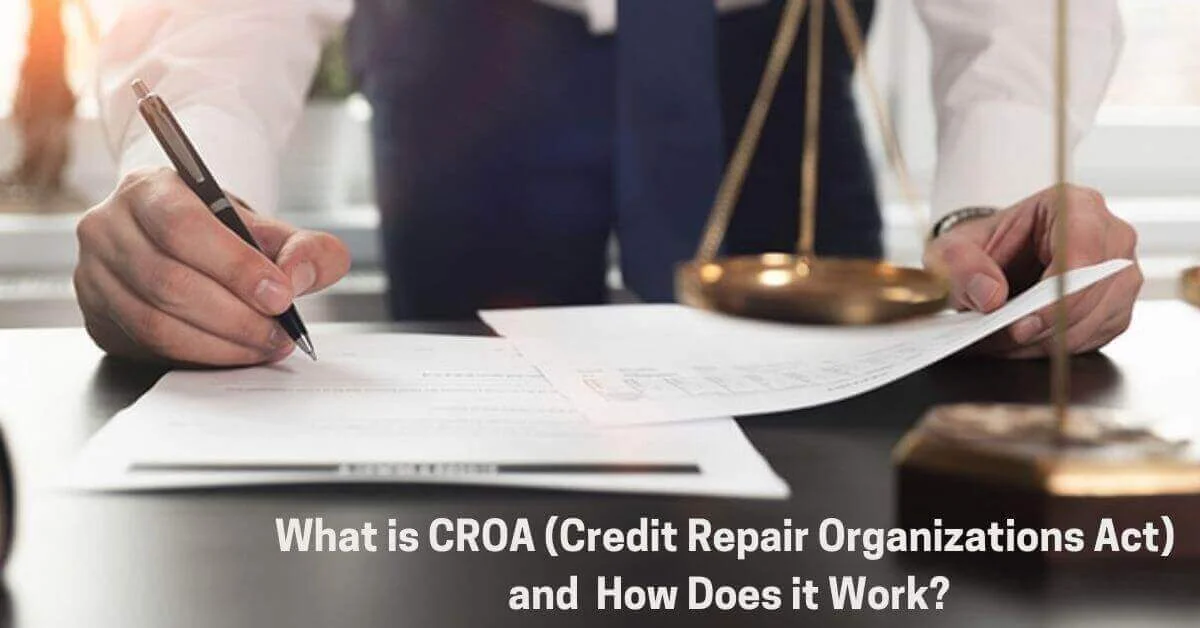Do you have bad credit? Are you looking for a credit repair service to improve your credit? Beware! You may fall prey to fraudulent service providers who use illegal methods to improve your credit.
Credit repair is a common practice amongst people who are struggling to maintain a good credit score. There are tons of companies offering all sorts of credit repair services that you can avail by paying a certain fee. But with so many companies in the market, separating legitimate credit repair services from a fraudulent one can be challenging. On top of it, if you’re looking for an immediate credit boost to get a loan/credit approval, you might make a decision out of desperation and fall victim to a scam.
As a result, you may get indulged in fraudulent activities, false promises and deceptive business practices. Therefore, to save you from such frauds, Congress passed the Credit Repair Organizations Act (CROA) in 1996 as an amendment to the Consumer Credit Protection Act of 1968.
Wondering what it is? Take a few minutes to read this blog, and you will get to know everything about CROA.
What is CROA and how does it work?
CROA (Credit Repair Organizations Act) is a legislative bill passed by Congress in 1996 to ensure a safe, smooth and transparent business between credit repair organizations and its consumers. It requires Credit Repair Organizations to provide written contracts to consumers with all the details of their services and its cost.
The two main purposes of CROA are:
- To ensure that consumers of credit repair organizations are provided with all the requisite information to make an informed decision.
- To protect consumers from unfair or Misleading advertising and business practices by credit repair organizations.
Who Enforces CROA?
Along with regulating the Credit Bureaus and Credit Repair Organizations, The Federal Trade Commission (FTC) is also responsible for enforcing CROA, as directed by congress.
Basic practices that CROA prohibited
1. Making untrue and misleading statements or advising any consumer to make such statements with respect to his/her credit report to
- Any consumer reporting agency.
- Any person who has lent credit to the consumer.
- Any person to whom the consumer has applied or applying for an extension of credit.
2. Making any statement or advising any consumer to make any statement with the purpose of altering consumer’s identification to conceal adverse information about his/her credit history, record or score from
- Any consumer reporting agency.
- Any person who has lent credit to the consumer.
- Any person to whom the consumer has applied or applying for an extension of credit.
3. Making or using any untrue or misleading representation of the services of the credit repair organization.
4. Engaging in fraudulent and deceptive activities with regards to the offer or sale of the services of the credit repair organization.
5. Credit Repair Organizations cannot charge consumers for any credit repair services until after the services have been fully performed.
How much time do you have to complain against any company in CROA?
Just like any other lawsuit, there is a defined statute of limitations on how long you have to file a complaint with the Federal Trade Commission in case you believe that your rights were violated. The maximum time to file a suit is five years from the date of violation.
How to know if a company is violating CROA?
One of the easiest ways to identify a company that is violating CROA is to understand their billing method. For instance,
- If a Credit Repair Company is asking you to pre-pay or pay in advance for the services, then it’s breaking the law.
- If a company fails to provide complete services as mentioned within the agreement, it’s violating the CROA.
- If a company charges you before performing all the work as mentioned in the contract, it’s a violation of the law.
- For consumers who have opted for subscription-based credit repair but haven’t got any results or improvement in their credit report even after six months, you can raise the complaints with FTC.
How are authorized user tradelines affected by it?
Authorized user tradelines or piggybacking is the practice of adding someone as an authorized user on someone else’s credit file, preferably someone with a good credit record.
Buying tradelines is a quick way of achieving a temporary credit boost in high times. Although authorized user tradelines are quite legal and included in credit scoring, the fact that you have to pay for it upfront is a clear violation of CROA. This is because it prohibits any credit repair firm from charging its consumers until after the services have been completed.
However, tradelines usually take about a month or two to show up on your credit report and in worst-case scenarios, may not appear at all due to factors such as security freezes, fraud alerts or any other red flags.
Thus, many states have taken a sophisticated and stricter approach to tackle such scenarios wherein upfront fee is involved before performing the services. Any credit repair company, when transacting an advance payment for buying/selling tradelines is required to use trust accounts for client’s funds and a surety bond of $10,000 or more.
Is a tradeline company subjected to credit repair organization act CROA?
CROA applies to every company that offers credit services, irrespective of its expertise. Surprisingly, not all credit repair companies sell tradelines. And tradeline itself is quite different from credit repair. In any case, the Federal Trade Commission has made it very clear by enforcing laws such as CROA that emphasize safe and ethical business practices between consumers and credit service organizations. Authorities have also passed special amendments in CROA in regards with authorized user tradelines to assist consumers from avoiding any scams.
CONCLUSION
Credit Repair Organization Act has changed the credit repair industry for good, brought transparency, and has helped overcome many malpractices associated with it. It is a great response to credit repair organizations who had a history of exploiting consumers, many of whom were already struggling with financial hardship.



